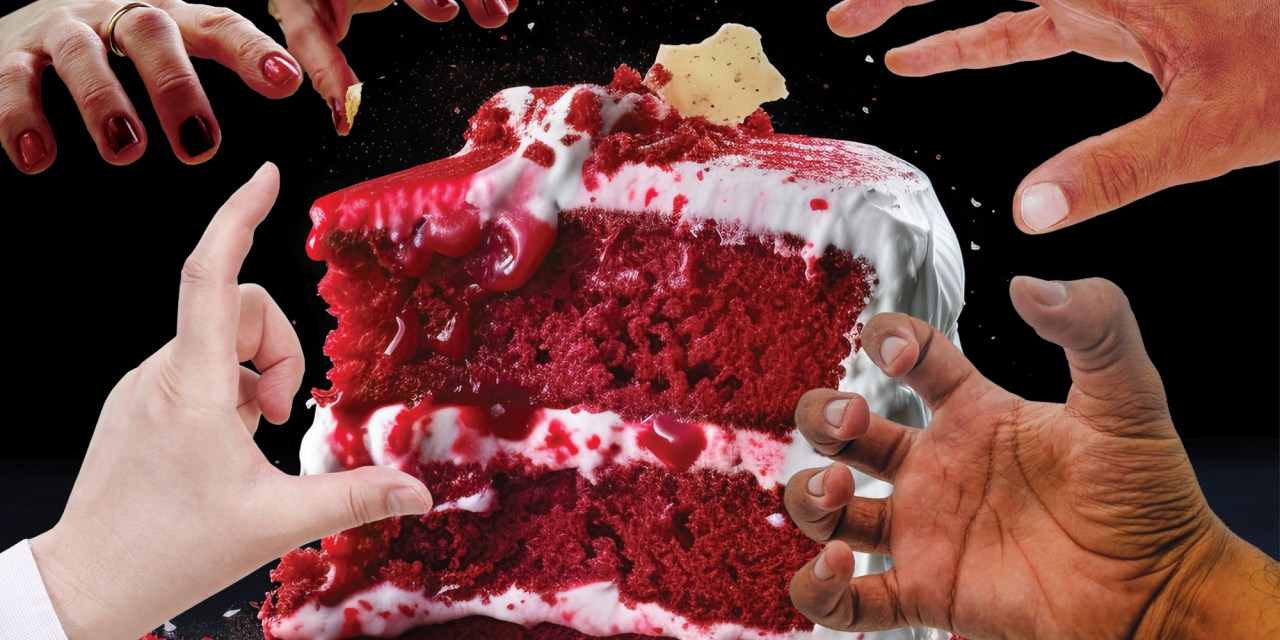Omry Makgoale is a rank and file member of the ANC. These are his personal views.
When former president Thabo Mbeki delivered his “Observations to mark the 30th anniversary of South Africa’s democracy” at Freedom Park in Tshwane on 30 April, he described the corruption and destruction of infrastructure and economy of the past 15 years as the result of “organised counter-revolution”, and he called for a “National Dialogue” to be held after the coming general elections.
There is growing support for Mbeki’s call for a National Dialogue, but there is a very serious issue he did not address.
As TimesLive reported, Mbeki “diagnosed what has paralysed” South Africa’s government and “proposed an inclusive dialogue with civil society organisations, politicians, businesses, labour and other organisations to discuss a way forward.
“He attributed failure of democratic government to ‘sabotage’ in state-owned industries such as Eskom and Sars, and ANC members ‘who serve selfish self-interests’…. Mbeki said the counter-revolution has caused suffering to citizens.”
He cited the call of ANC’s 2024 elections manifesto for “ensuring that the ANC public representatives and deployees are held accountable for the basic services to communities”.
The question Mbeki left open, though, was: how can politicians be made accountable to ourselves, the voters? Our problem is that the electoral system under three decades of ANC government blocks the individual accountability of MPs, provincial councillors and also leaders of state enterprises to us, the citizens of South Africa.
Read more in Daily Maverick: 2024 elections hub
The ANC manifesto talks of building a “developmental and ethical State, led by honest, dedicated and capable leaders”, but how can that happen when MPs and provincial councillors are appointed by party bosses, and not elected by name by local voters, who can get rid of them when they fail us?
Mbeki said that the ANC must build and entrench “strong ethical foundations” to “end lawlessness, violence against the person, including gender-based violence, as well as a pernicious individualism which leads to looting, corruption and all manner of criminal abuse”.
This is true. But it’s not possible to achieve this under the present Electoral Act. There is no guarantee that any new leadership will meet these minimum standards.
It has just been revealed that Fikile Mbalula, the ANC secretary general, has admitted that the lists of candidates submitted to the Independent Electoral Commission were tampered with. Without trustworthy leaders accountable as individuals in elections, Mbeki’s wishes remain an illusion and a pipe dream.
30 static years
The reality is that when we as school students rose up to challenge the might of the apartheid state in 1976, our focus was on establishing one person, one vote of equal value for all the citizens of South Africa. This meant the right to directly elect our leaders.
We fought for equal rights for all the citizens of South Africa, black and white, but the goal of equal rights for all citizens remains elusive today. The class of 1976 has lost the ball and the focus.
We still do not have the same rights the whites had under apartheid. One person one vote of equal value for electing our leaders remains elusive.
The initial parliamentary electoral laws adopted in 1994 were understood to be temporary and not permanent, but they have been kept for three decades by subsequent ANC governments, despite several proposals to change them.
In 1999 the Electoral Task Team, chaired by Dr Frederick Van Zyl Slabbert, was set up to explore preferable parliamentary electoral laws for South Africa. When the Electoral Task Team presented its report in January 2003, it had two main recommendations: the minority recommendations and the majority recommendations.
The minority recommendations proposed a 100% proportional representation electoral system, also known as the closed list system, in which citizens are only allowed to vote for political parties. The citizens have no rights to choose their members of Parliament themselves, they cannot choose their President, and they cannot choose their provincial premiers and their mayors. All these government officials are appointed by political parties without the participation and input of the citizens themselves. The citizens are treated like children, with no right to choose the members of Parliament by name and constituency.
Let the people decide! This is the only way to make a success of former President Thabo Mbeki’s excellent proposal for a National Dialogue. DM



 1 week ago
82
1 week ago
82

















